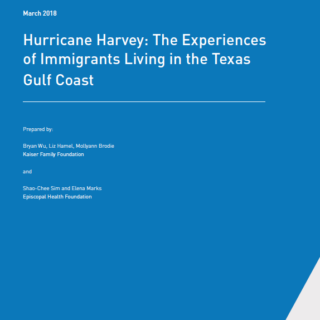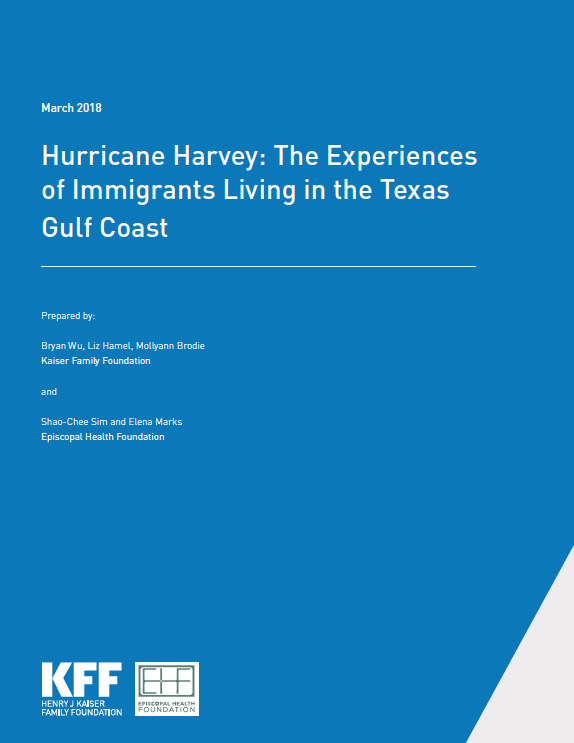The analysis examines differences between immigrants and U.S.-born families based on a fall KFF/EHF survey of residents in 24 Texas counties hit hard by Hurricane Harvey in August 2017. Other findings include:
- Immigrants were more likely to report living in tenuous financial and social circumstances than their U.S. born neighbors. For example, seven in 10 (69%) said they had just a few or no people living nearby they can rely on for help or support, and more than half (56%) reported incomes below 200% of the federal poverty level.
- Immigrants were somewhat less likely than native-born residents to report damage to their homes as a result of the storm, but among those who did, immigrants were less likely to say they had applied for disaster assistance or that they had any type of home or flood insurance.
- About half (48%) of immigrants whose homes were damaged said they were worried that if they tried to get help in recovering from Hurricane Harvey, they would draw attention to their or a family member’s immigration status.
- Immigrants affected by Harvey were more likely than non-immigrants to say they needed additional help getting medical care following the storm (24% vs. 13%). This reflects the fact that immigrants were less likely to report having health insurance or a regular source of care.
- Similar to residents overall, immigrants ranked rebuilding destroyed homes, along with financial and housing help for those who need it, as the top priorities for recovery efforts.
The analysis is based on the Texas Post-Harvey Survey, designed and analyzed by KFF and EHF researchers and conducted by landline and cellular telephone October 17 – November 20, 2017 among a random sample of 1,635 adults ages 18 and older living in 24 Texas counties that suffered large amounts of property damage from Hurricane Harvey according to FEMA reports. The margin of sampling error including the design effect for the full sample is plus or minus 3 percentage points, and plus or minus 7 percentage points for results based on immigrants (N=290). For results based on other subgroups, the margin of sampling error may be higher.

